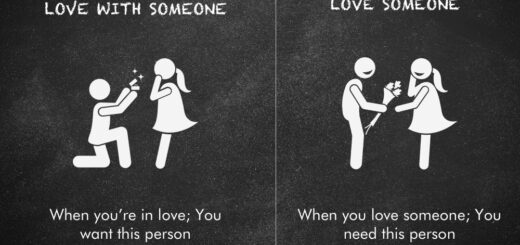4 Signs of Toxic Jealousy You Should Never Ignore
Even one of the more stable relationships might have to deal with the waves of jealousy. Usually, you feel sick after watching your spouse bond with a gorgeous coworker. We’d bet that nearly all couples have experienced some version of the “Seriously, they’re just a friend” discussion. The green-eyed beast may be adorable at moments. (Isn’t it cute that they are so much for you?)
It’s not a warning sign of a relationship in and of itself, Vernessa Roberts, PsyD, LMT, Therapist who assists couple couples from Sacramento, California, tells Self. Ultimately, this anxiety is often rooted in fear, paranoia, trepidation, or insecurity. Dr. Roberts says all these are natural reactions when you’re worried about losing someone you value. “Although most of us don’t like this emotion, jealousy can actually be a healthy indicator that maybe we don’t feel secure and need some reassurance from our partner,” she suggests. However, when self-doubt turns into irrational and violent accusations or guilt-tripping, controlling behaviors, then jealousy could be a sign of an issue that is more significant.
“The biggest difference between healthy and unhealthy jealousy is how we manage it,” Dr. Roberts says. The former is typical, standard, and, most importantly, temporary. The second tends to be “toxic, explosive, and uncompromising, usually indicating a desire to control the other person,” she says. The line between these two can be fine, so we asked therapists to provide the most commonly-cited warning indications that jealousy is too far. These are the most important warning signs that you should not overlook:
They watch your every step.
It’s OK to be concerned about the person you’re calling late in the night or at what bar you’re at with your buddies with no one else. If you feel like you are required to keep track of your location constantly, say you’re a lover who wants to read your messages in the guise of “there shouldn’t be anything to hide,” this is an indicator that your jealousy has shifted into dangerous space, Aimee Hartstein LCSW who is a psychotherapist in the Therapeutic Alliance of New York Counseling who is a specialist in divorce counseling and couples counseling guidance she informs SELF.
“Constantly keeping tabs on your every move, like regularly snooping on your phone, is an unsustainable fix,” Hartstein states. “They may feel better knowing you’re not flirting with someone today, but they’ll keep surveilling you to ensure you’re not doing something tomorrow, which is an invasion of your privacy.” Even when you’ve been lying to your partner regarding your previous relationships, for example, or made up regarding your habits with money, it does not allow them to observe you with a keen eye. This is irritating and can cause stress to relationships, but also taking your freedom away and degrading your privacy could indicate emotional abuse, as per Harstein.
In the final moments of your day, she adds that you’ll be able to relax and feel secure when you’re in a good relationship. Not feeling like being smothered by an unruly parent or losing your autonomy.
The jealousy of their children can result in anger-filled outbursts.
Every person has times when anger takes over them, which causes them to respond in ways they’re not pleased with. If you’re constantly being a twitchy companion and blatantly lying to them, or being cautious in fear that a mistake could trigger screaming matches, then take the time to consider what the reason is for you being too careful, as Dr. Roberts recommends.
For example, do you take their calls immediately since you’re sure they’ll be angry if you do not? Do you have to change your clothing because you don’t think it’s “appropriate” according to your partner? It’s not easy to identify unhealthy jealousy or anger at the time; however, constantly worrying about how your partner might react to your daily decisions is a significant signal of trouble, according to Roberts, Dr. Roberts says.
“Walking on eggshells signals a lack of openness in the relationship and can also mean there’s a lack of vulnerability and authenticity,” which could, according to her, indicate emotional abuse. It’s not a good idea to feel anxious when discussing the upcoming dinner plans, and you must be able to freely express your opinions regardless of whether they might disagree with you. The feeling of anxiety in anticipation of your body’s reaction is your body’s way of telling you there’s a feeling of not being at ease or secure around the person you’re talking to, and it’s crucial to follow your intuition, according to Roberts says. Roberts adds.
They do not allow you to spend time alone with your friends.
Are you at ease with your partner laughing at jokes about your friend who happens to be incredibly chic and effortlessly cool? We don’t think so. It’s normal to feel a small amount of anxiety during times such as these, Hartstein says, but there’s a distinct difference between temporary jealousy and more controlled behavior. Yes, everyone has their fears. However, nobody has the right to choose whom you speak to or who you hang out with.
However, that doesn’t mean you have to dismiss your partner’s worries. For example, suppose your intimate interactions with a previous fling make you uncomfortable. In that case, you should be able to validate your partner’s concerns (how do you think in the same position?) and establish clear boundaries according to Roberts’s advice. Roberts advises. A different scenario is: suppose you would like to take and go on a weekend getaway with a group of people that your partner isn’t familiar with and are asking a lot of questions regarding the schedule (“Who do these individuals belong to? Why haven’t they met me? ?”). Instead of just ignoring their questions or refusing to accept the invitation at all or not getting the invitation at all, you can sit down at an agreement, such as agreeing to send them a text every evening to make sure you’re safe or inviting them to meet your acquaintances before the meeting so that they feel more relaxed.
Suppose you’ve been trying to compromise and become as transparent as possible, and your spouse still needs to be sure or asks questions when you’re out with others. In that case, it indicates that your “overprotectiveness” or “concern” is just a form of controlling or abusive behavior disguised as love.
They will try isolating you from others, such as family and friends.
This is a red-hot warning sign to always pay attention to, as per Hartstein. “If your partner puts down your loved ones constantly or tries to make you think they’re the only person you can trust, beware,” she warns. Instead of seeking to “protect” you, they might attempt to cut you away from your family and friends to manipulate and control you. This Hartstein, along with Roberts and Dr. Roberts, both agree, is the most common cause of an unhygienic relationship.
The attempts to be isolated may be as subtle as complaining about how frequently you call your brother or sister via phone (“Are you sure that you’re willing to contact them again? It’s like they’re a negative impact”) but also as severe as being angry when they discover that you attended an impromptu coffee date (“I cannot believe you didn’t let me know beforehand !”). “We need external connections beyond our romantic relationships, and it’s important to receive different types of support from different groups of people in order to grow as individuals,” Dr. Roberts says.
She says that being separated from your significant other, spending time away, and having your own group of friends or hobbies are equally important to you and your partner as spending time with your loved ones. Someone who truly cares for you will inspire you to be your unique person and to connect with the people and things you are passionate about, not hinder you from doing so.



